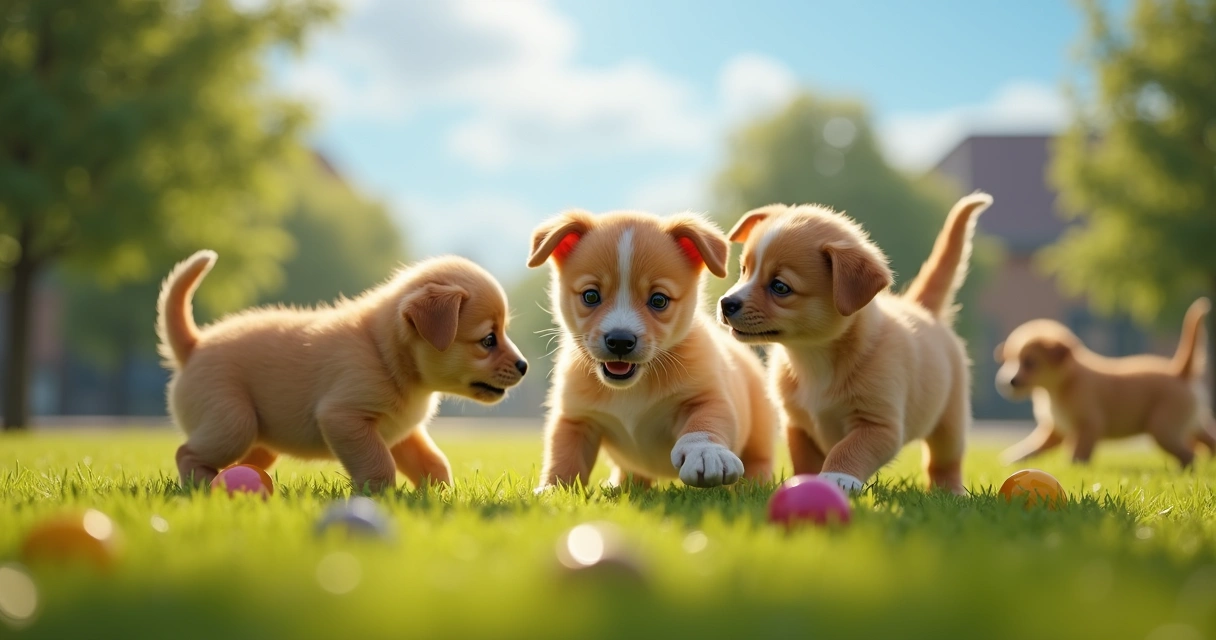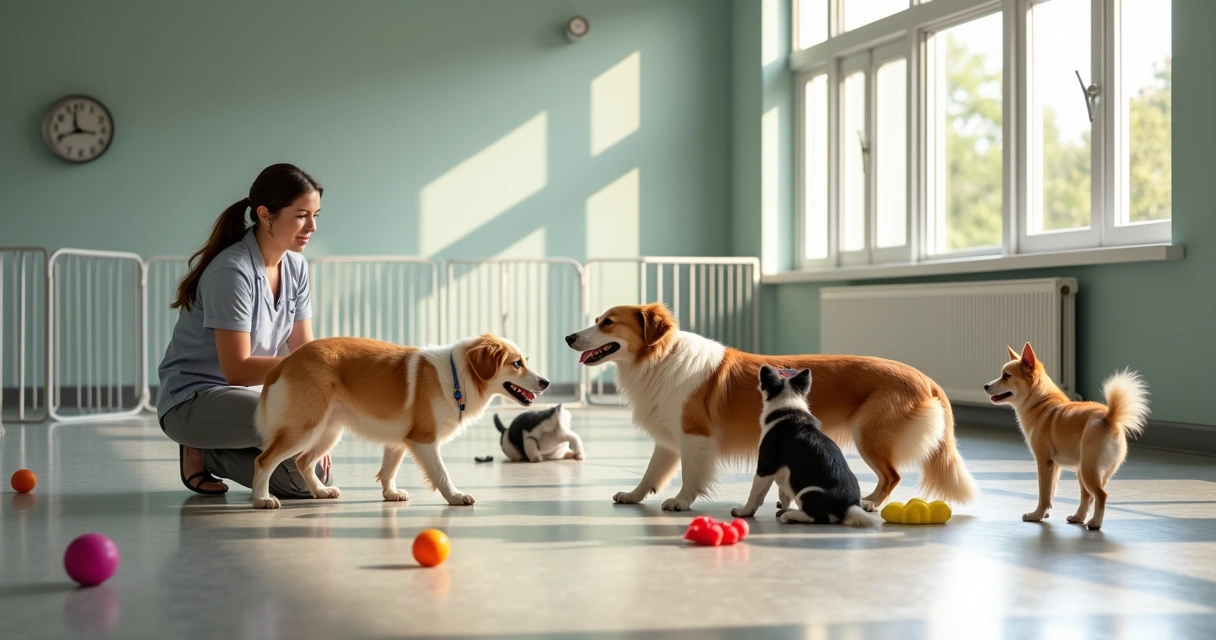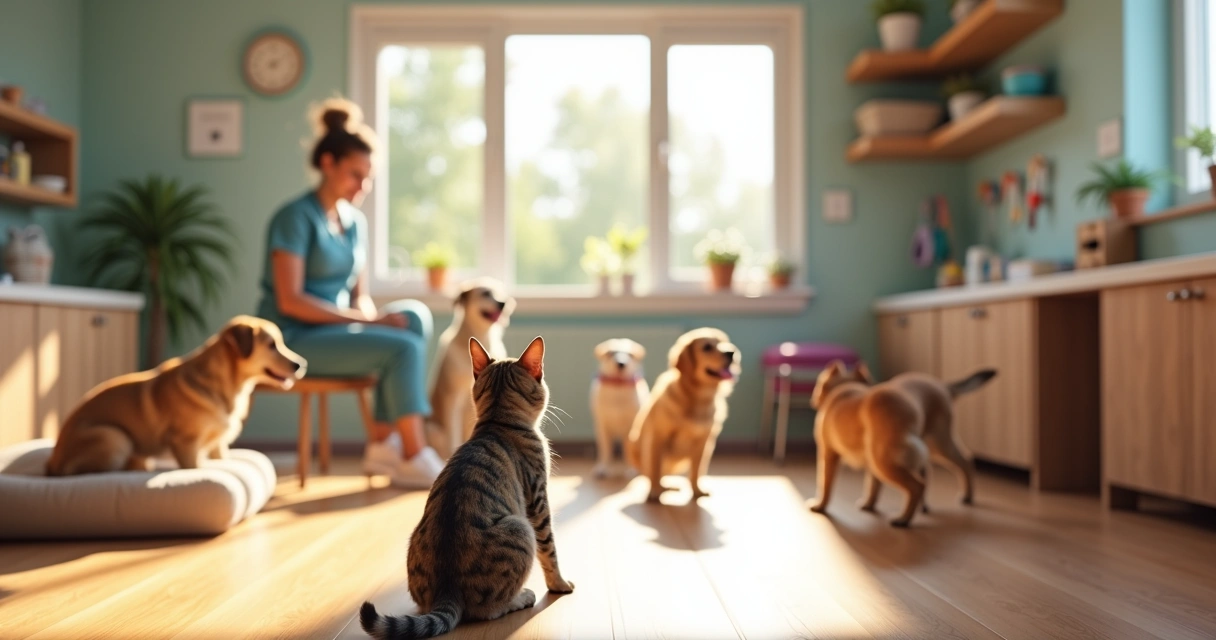There’s a unique and fleeting moment in a dog’s life—the first few months when their world is a blank canvas. What you choose to paint on it matters for years. A well-socialized puppy is confident, friendly, and ready for the wonderful mess of life. And if I’m being honest, the process of socialization can be a little stressful at first, both for puppies and for their families. But that’s perfectly normal.
If you live near Gloucester, MA, you may have heard about places like Dogtown, where play and learning go paw in paw. Still, most of this journey begins right at home, with small steps and real patience.
Why socializing your puppy matters more than ever
Maybe you’ve watched a dog shy away from strangers or heard wild barking behind a fence. Sometimes that’s more than just personality—it’s a sign that early socialization was missed. According to animal behavior studies, puppies are most receptive to social experiences between 3 and 16 weeks old. This window is short, and what happens during it can shape your puppy’s entire life.
Every gentle hello shapes the heart of your future dog.
Missing the social window could mean fear, anxiety, or aggression when the dog is older. No one wants that. Setting your pup up for a lifetime of good experiences starts with little adventures designed just for them.
When and how to start socializing
Maybe the hardest part is figuring out when to begin. The answer is: sooner than you think, but never too late to help.
Puppies aged 3 to 16 weeks are in their prime for socialization. During this phase, their minds are open and flexible. That doesn’t mean you should push them into overwhelming situations. Think small and steady.
- Start around the house first: new rooms, kitchen gadgets whirring, or people coming and going. Let them watch, sniff, listen, and learn.
- Gradually add car rides, trips in a stroller, or just supervised time in the yard.
- Once vaccinations are in order, carefully introduce new people and calm, healthy animals, always under close watch.
Research, like what you’ll see in tips for successful puppy socialization, shows that controlled and repeatable exposure to different environments helps build trust and resilience.
Creating positive associations
So you’ve introduced your puppy to the world—or at least, your living room. How do you make sure it’s a positive experience?
- Use treats, praise, and affection generously.
- When your puppy explores something new or reacts calmly to a strange sound, let them know you’re proud.
- Pair each fresh experience with something your puppy loves—this could mean a soft voice, belly rub, or a favorite treat.
Good things happen when you try something new.
The science behind this comes down to how young creatures form memories. As highlighted by the experts in canine behavior, positive reinforcement ensures these early experiences are remembered fondly, making it more likely your puppy repeats confident, friendly behaviors.
Getting your puppy used to people, places, and animals
Start simple. Let your puppy hear traffic from a safe distance or meet a neighbor in the driveway. Don’t rush indoors with lots of excitement or crowds. Your job is to be your puppy’s “safety base”—someone they can look to, run to, and trust.
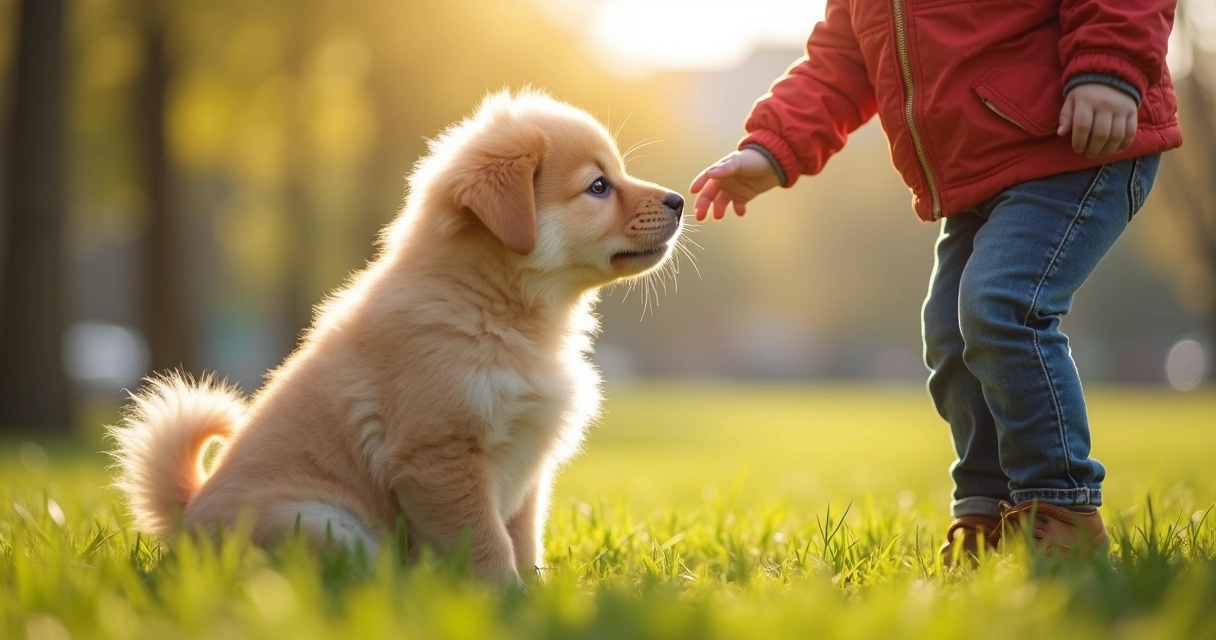
- People: Invite friends over, and have them ignore the puppy at first so your pet can approach when ready. Gentle petting and quiet voices are best.
- Other dogs and cats: Supervised introductions to calm pets can prevent fear or aggression later in life (supervised animal encounters are a proven strategy).
- Places: Walk by schools, bus stops, or busy parks—but always at a pace your puppy accepts. Not every dog will love crowds or chaos.
Let curiosity be the guide, not fear.
I remember watching a shy puppy climb into a lap at Dogtown’s play area, tail wagging after a few hesitant sniffs. There’s magic in those little victories. Let them happen at your puppy’s own pace; confidence is built, not forced.
Making handling and grooming part of socialization
Don’t underestimate the challenge of brushing, bathing, or nail trimming for the first time. Many dogs learn to dislike these necessary rituals because they weren’t handled gently as pups.
- Rub their paws and ears, stroke their tail, and peek into their mouth, but keep it calm and short at first.
- Reward them with treats after each touch.
- Repeat, increasing the duration as your puppy gets comfortable.
Gradual exposure and positive reinforcement help prevent battles at the vet or the groomer. Groomers and trainers have found that dogs who are regularly handled as puppies are far less likely to bite or panic.
What to do when your puppy gets scared
Every puppy, even the boldest, will be startled sometimes. Loud trucks, umbrellas, or the vacuum cleaner can trigger a retreat. That’s not a failure. It’s a learning moment.
- Stay calm, quietly comfort your puppy, but don’t coddle or reinforce fear. Let them retreat a little, then try again later.
- Use treats to encourage investigation, but avoid forcing anything new.
- If fear continues, give your puppy more time. Weeks, not days—progress is often gradual.
Patience is the quiet hero of puppy training.
Puppy socialization classes and safe group play
Even the best home efforts benefit from structured social sessions. At trusted facilities like Dogtown, carefully supervised group play lets puppies practice canine manners. These classes balance fun and safety, with staff noticing individual personalities and adjusting playgroups as needed.
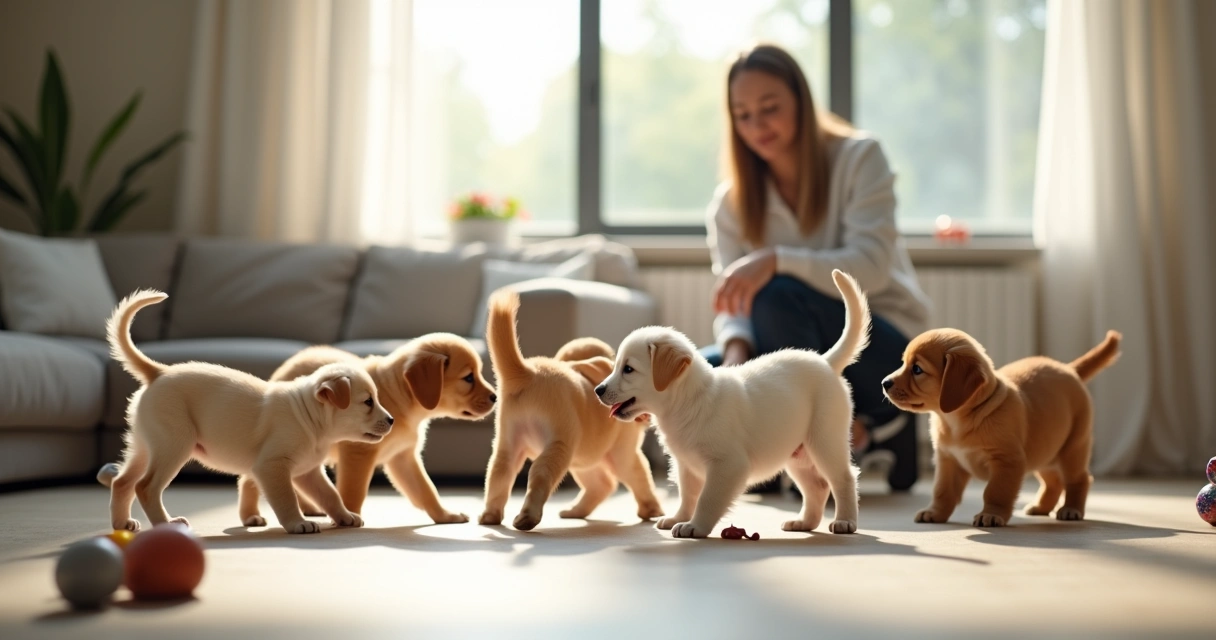
Classes usually teach both puppies and owners—about signals, safe play, and the value of a calm routine. Dogtown, for instance, structures its groups to account for puppy size and temperament, which can make a big difference for shy or excitable pups. It’s not just about new friends. It’s about building confidence, one small adventure at a time.
Conclusion: begin today, with your puppy’s future in mind
Your puppy doesn’t need the world all at once. They just need your patience, your gentle touch, and the right opportunities. Each day is a chance to add another good memory.
And if you want some help? Places like Dogtown in Gloucester, MA, offer expert guidance, safe group activities, and friendly advice. Whether you’re just starting or need a little reassurance, reach out—let’s create a kinder, braver generation of dogs together. Contact us now to schedule a pre-enrollment assessment or tour our space. Your puppy’s bright future starts with one friendly hello.
Frequently asked questions
What is puppy socialization?
Puppy socialization is the process of gently introducing your puppy to a range of new sights, sounds, people, animals, and environments. The purpose is to help your puppy grow comfortable with differences in the world, reducing fear and preventing behavioral issues in adulthood. These early experiences are important for building a confident, happy dog.
When should I start socializing puppies?
Socialization should begin as early as 3 weeks old and ideally continue through 16 weeks. This period is when puppies are most open to new experiences, according to canine behavior studies. If you miss this window, socialization is still possible—just slower and with more care.
How to socialize a shy puppy?
Start slowly and let your shy puppy set the pace. Keep experiences calm and positive: reward small acts of bravery, provide treats, and never force new encounters. Short, repeated sessions work best. Pair your shy puppy with calm, friendly dogs or people, and consider working with a qualified trainer if needed.
Can I socialize my puppy at home?
Yes, you can do a lot at home! Introduce your puppy to family members, safe household noises, and gentle handling. Let them explore different surfaces and toys. Once they’re comfortable, arrange for calm visitors or supervised animal introductions. Home is a great starting point for building confidence.
What are the best places for socialization?
Great places include parks, pet care facilities like Dogtown, quiet shopping streets, or outdoor cafés. Early on, choose low-stress environments where your puppy won’t be overwhelmed. Puppy classes and playgroups are also valuable once your puppy is vaccinated and ready for more. Always watch for signs of stress so you can adjust the pace.


